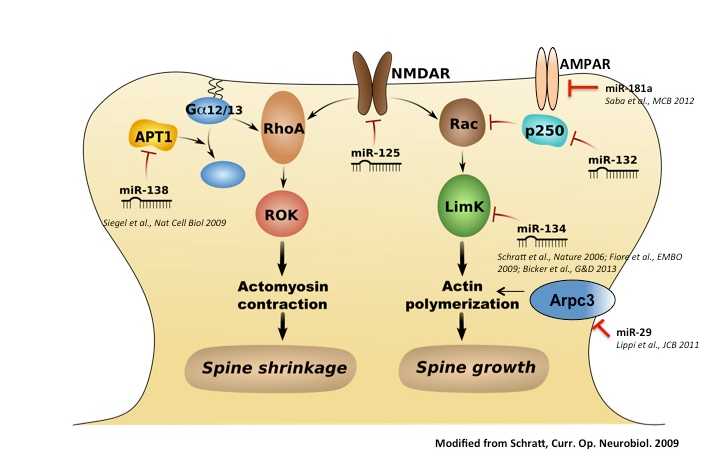The Group
The correct formation and use-dependent modification of neuronal networks in the brain is a prerequisite for higher cognitive functions and complex behaviours. Disturbances in these processes can lead to severe neurodevelopmental and psychiatric disorders, such as autism and affective disorders. Research over the last three decades has identified activity-dependent gene expression programs that control the formation and plasticity of neuronal synapses. However, these studies mostly focussed on the role of protein-coding genes, which are encoded in less than two percent of our genomic material.
In our lab, we want to understand the function of different classes of RNAs that originate from non-coding parts of the genome (so-called non-coding RNAs) in mammalian synapse development and plasticity. A major focus is on microRNAs, small regulatory RNAs that control the expression of protein-coding genes at the post-transcriptional level. Therefore, we employ a systems approach, combining state-of-the art genomics, proteomics and mouse genetic approaches. In addition, we are addressing a potential clinical relevance of non-coding RNA pathways in different neurological conditions through multicentre collaborations.
